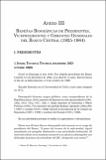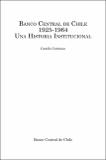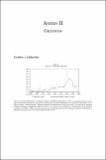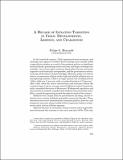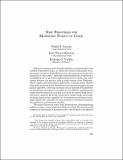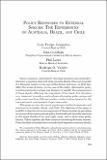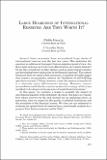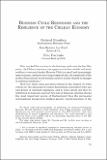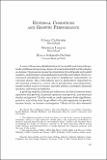Buscar
Mostrando ítems 31-40 de 323
Banco Central de Chile 1925-1964: una historia institucional
La serie de libros 'Banca Central Análisis y Políticas Económicas' del Banco Central de Chile publica trabajos inéditos sobre banca central y sobre la economía en general con énfasis en temas y políticas relacionados con la conducción económica de los países en desarrollo. La publicación de los libros ...
Inflation targeting in Brazil: shocks, backward-looking prices, and IMF conditionality
In mid-January 1990, Brazil abandoned its crawling exchange rate band. Surprisingly enough, the country's economic performance in the aftermath of this episode was much better than expected, given the performance of other emerging market economies after a move toward floating. Despite the large ...
A decadeof inflation targeting in Chile: developments, lessons, and challenges
In the twentieth century, Chile experienced most monetary and exchange rate regimes. Periods of fixed exchange rates usually ended in speculative attacks as a result of inconsistent policies or significant external shocks, generating serious real costs and larger exchange rate volatility.
New frontiers for menetary policy in Chile
Inflation targeting can be broadly defined as a framework for the conduct of MONETARY POLICY in which the central bank guides its instruments in order to hold inflation near a preannounced target or to bring back to the target. Although understanding the framework is straightfoward, its practical ...
Policy responses to external shocks: the experiences of Australia, Brazil, and Chile
Open economies, particularly emerging markets and commodityintensive economies, deal with large external shocks. These are typically of a financial nature in the case of the former and real—in that they affect the terms of trade—in the case of the latter. Alternative policy reactions and policy setups ...
Large hoardings of international reserves: are they worth it?
Several Asian economies have accumulated large stocks of international reserves over the last few years. This motivates the question we address in this paper from an empirical point of view. Are these large increases in reserves an efficient crisis-prevention strategy? Or are they second-best to other ...
Business cycle responses and the resilience of the chilean economy
After marked fluctuations in the business cycle over the last fifty years, the Chilean economy now appears to be less volatile and more resilient to external shocks. Because Chile is a small and increasingly open economy, analysts have long suspected that the amplitude of the cyclical fluctuations in ...
External conditions and growth performance
A central dimension of globalization is the world trend toward larger trade and financial openness, observed in most industrial and developing economies. Openness increases the integration of world goods and capital markets, contributing to potential gains in growth and welfare. However, increased ...

